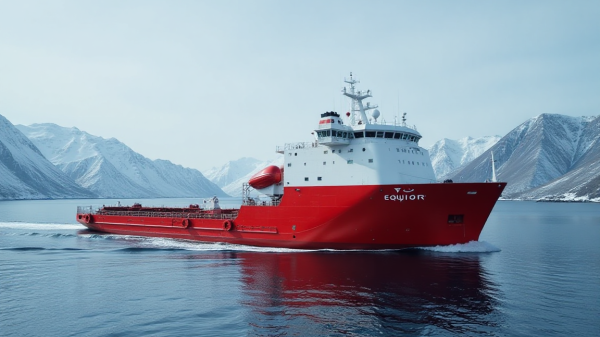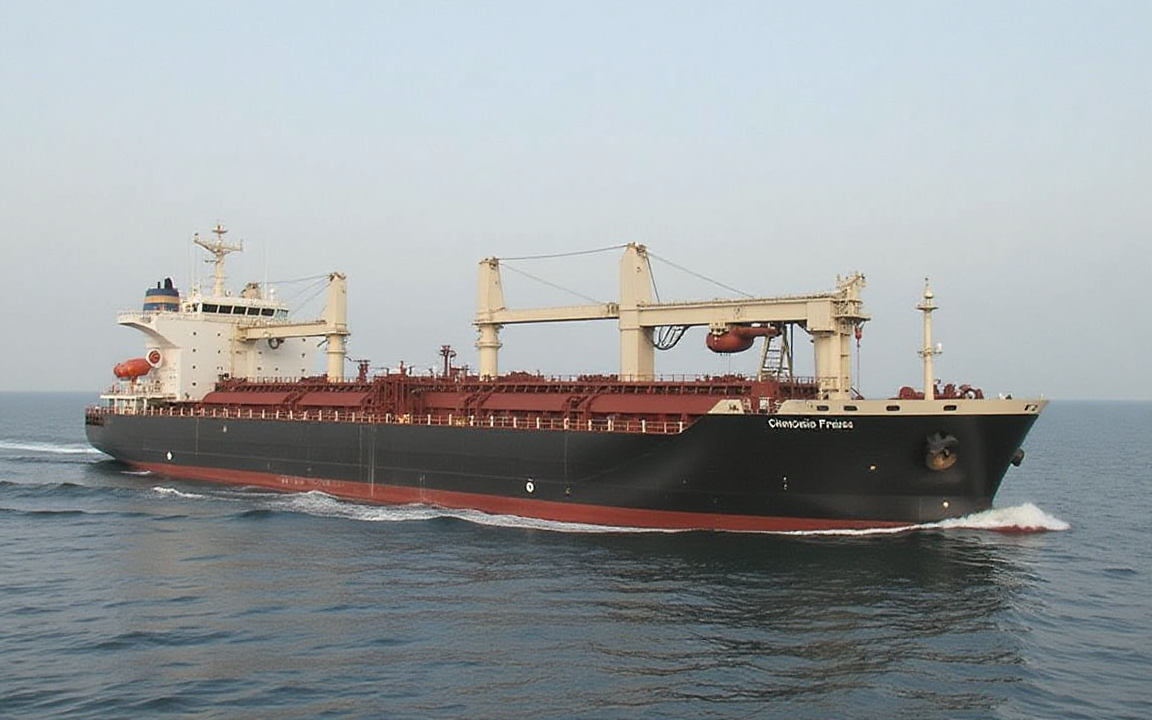Soaring demand for cleaner marine fuel in Europe, driven by shipping companies like Maersk, has led to a complete acquisition of all four April cargoes of Chadian Doba crude by Dutch and German oil refineries, according to a Reuters report.
This surge in demand is directly linked to the shipping industry’s efforts to adopt fuels with lower emissions.
The strategic importance of Chadian Doba crude lies in its suitability for producing the cleaner marine fuels that are currently highly sought after in the European market.
The complete uptake of available cargoes underscores the intensity of this rising demand and the potential for further shifts in crude oil trade flows based on evolving fuel preferences within the maritime industry.
Prior to April 2025, Asia served as the primary recipient of Doba cargoes, with China and Malaysia specifically accounting for multiple shipments, data from Kpler indicated.
This suggests a significant trade flow of Doba to these key Asian markets during that period.
The concentration of shipments in China and Malaysia highlights their importance as consumers or processors of this particular commodity.
IMO regulations
The International Maritime Organization (IMO) designated the Mediterranean Sea as an Emission Control Area (ECA) in May.
This new regulation mandates that ships operating in this region must use fuels with a sulphur content of no more than 0.1%, a decrease from the previous limit of 0.5%.
The rise in demand for ultra-low sulfur fuel oil (ULSFO) in Europe, driven by stricter environmental regulations aimed at reducing sulfur emissions from maritime transport, led to a substantial increase in exports of Doba crude.
This heavy, sweet crude oil, characterised by its low sulfur content and density, possesses qualities that make it exceptionally well-suited for the refining process required to produce ULSFO, which has a maximum sulfur content specification of just 0.1%.
Advantage of Doba crude
European refiners found Doba crude to be an advantageous feedstock, offering a higher yield of compliant ULSFO compared to many other crude oil grades.
This optimized their production processes and met the evolving regulatory landscape.
This confluence of environmental policy and the specific characteristics of Doba crude resulted in a notable surge in its export volumes to European markets.
According to Rystad Energy analyst Valerie Panopio, Doba is well-suited for blending ultra-ULSFO. The increase in exports to Germany and the Netherlands observed in April may be an effort to capitalise on the expected increase in demand for ULSFO.
Panopio was quoted in the report:
There aren’t very many grades with the same properties as Doba Blend, even harder to find is one with ample and steady supply.
Chad exports
Chad’s oil exports, approximately 130,000 barrels daily, are regularly shipped to Asia, Europe, and the Middle East, according to Kpler shipping data.
Additionally, Kpler reports that April saw the highest volume of Doba crude oil in a year, approximately 127,000 barrels per day, being transported to Europe via four Suezmax vessel fixtures.
Since January, two European oil refineries have received Doba crude: Dutch storage firm Chane’s Rotterdam plant and HES International’s Wilhelmshaven unit in Germany, according to Kpler data.
To meet new regulations in the Mediterranean, Maersk’s bunker buyer, Maersk Energy Markets, has secured a deal to purchase ULSFO from Chane’s Rotterdam facility for its fleet, according to Maersk.
The post Europe’s demand for cleaner fuels drives surge in Chadian Doba crude imports appeared first on Invezz

































